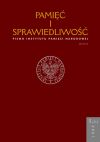Ekonomiczne aspekty kryzysów systemu komunistycznego w Polsce (1956–1980)
Economical Aspects of the Crises of the Communist System in Poland (1956–1980)
Author(s): Janusz KalińskiSubject(s): History
Published by: Instytut Pamięci Narodowej
Summary/Abstract: The author describes economical conditions in which social and political crises occurred in Poland in 1956, 1970 and 1980. Repeated problems were caused by social ineffectiveness of the system which was based on the state ownership and controlled by political decisions. Since 1950, following the Soviet example, strenuous industrialisation and collectivisation of agriculture had been started. As a result the economy was not able to meet the basic consumption needs of the society. After the tragic events in Poznań in 1956 the authorities attempted to balance the economy and raise standards of living. Nevertheless, in 1959 they returned to dogmas of industrialisation. This effected in renewed economical problems and dissatisfaction of the society, which resulted in events of December 1970. Similarly, in August 1980 the economical policy of the seventies was over, the promising beginning of which was connected with foreign credits. In all the period of People’s Poland doctrinal justification and preferences for machine industry led to insufficient level of consumption production. Negative effects in supply of market goods were brought by fighting private enterprises in the field of craft and small-scale production, and foremost – destructive agricultural policy which aimed at structural rebuilding of farming at cost of peasant’s economy. Polish economical situation and living conditions were constantly negatively influenced by excessive armaments, and in the seventies – speedily growing foreign debt. As a result a quasi-economical cycle could be observed, in which one could distinguish the following periods: acceleration based on accumulation growth (years 1950, 1959, 1971), overinvestment connected with lowering standards of living of the population (years 1953, 1968, 1976), flounder attempts of the authorities to correct economical policies (years 1954, 1969, 1976) and socio-political crises (1956, 1970, 1980). Each of the governments in Poland between 1950 and 1980 repeated this pattern, and the reason was reluctance towards deep reforms, which were rejected of doctrinal reasons or because of fear of unfavourable reaction of the Kremlin. Behind all these there was undisguised wish to keep the power given to Polish communists by Stalin.
Journal: Pamięć i Sprawiedliwość.
- Issue Year: 11/2007
- Issue No: 1
- Page Range: 89-104
- Page Count: 16
- Language: Polish

